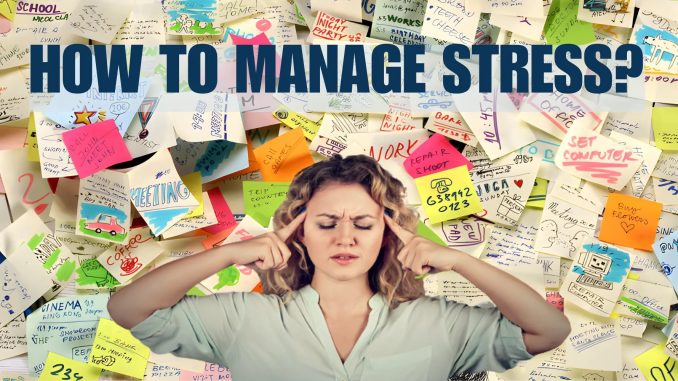
In the relentless churn of modern existence, where professional demands often bleed into personal time and digital connectivity blurs the lines between work and rest, stress has become an almost ubiquitous companion. While a certain degree of pressure can be a motivator, chronic, unmanaged stress is a silent saboteur, eroding our physical health, mental clarity, and emotional well-being. For individuals navigating the complexities of a busy life, particularly those in demanding careers, simply enduring stress is not a sustainable strategy. Instead, cultivating effective management techniques becomes an essential skill, a strategic investment in long-term resilience and sustained productivity. It’s about designing your life to absorb inevitable pressures without succumbing to their debilitating effects.
One of the foundational tips for managing stress in a busy life is to **master the art of mindful time management, which includes strategic prioritization and realistic scheduling.** Often, stress doesn’t stem from having too much to do, but from feeling overwhelmed by a lack of control over the workload. Begin by identifying your absolute top priorities each day, focusing on tasks that align with your most significant goals. Utilize tools like the Eisenhower Matrix (urgent/important) to categorize tasks, ensuring you dedicate energy to what truly matters. Equally important is learning to say “no”—politely but firmly—to additional commitments that do not align with your priorities or exceed your capacity. Overcommitting is a fast track to burnout. For example, rather than agreeing to lead every new project, assess its alignment with your strategic objectives and current bandwidth. A realistic schedule that builds in buffer time and doesn’t pack every minute helps manage expectations and reduces the frantic rush that fuels anxiety.
Beyond task management, **integrating micro-breaks and moments of presence throughout your day** can significantly alleviate cumulative stress. Our minds are not designed for continuous, uninterrupted focus; periods of brief disengagement are crucial for cognitive rest and renewal. This means consciously stepping away from your desk every hour or two for just 2-5 minutes. Use this time to stretch, walk to a window and gaze outside, or simply close your eyes and take a few deep breaths. These micro-breaks disrupt the stress response, reduce mental fatigue, and improve overall focus. Think of them as mental “reboot” moments. For someone deep in a complex spreadsheet, even a 60-second stand-up and stretch can break the tension and prevent the build-up of neck and shoulder strain, which contributes to physical stress.
**Prioritizing physical well-being** forms another indispensable pillar of stress management. This involves consistent attention to sleep, nutrition, and physical activity. Chronic sleep deprivation amplifies stress, impairs cognitive function, and compromises immune health. Aim for consistent, quality sleep, establishing a wind-down routine that signals to your body it’s time to rest. Similarly, mindful nutrition, focusing on whole, unprocessed foods, provides stable energy and supports brain chemistry, whereas reliance on caffeine and sugary snacks can lead to energy crashes and heightened anxiety. Regular physical activity, even moderate exercise like a brisk walk, serves as a powerful stress reliever by releasing endorphins and metabolizing stress hormones. For example, instead of grabbing another coffee during a mid-afternoon slump, a 15-minute walk around the block can often be more effective at boosting energy and clearing the mind.
Crucially, **cultivating emotional regulation through mindfulness and self-compassion** can transform your relationship with stress. Stress often stems not just from external pressures, but from our internal reaction to them. Practices like meditation, even for just 5-10 minutes daily, train your mind to observe thoughts and feelings without judgment, creating a buffer between external stimuli and your emotional response. This allows you to respond thoughtfully rather than react impulsively. Furthermore, practicing self-compassion—treating yourself with the same kindness and understanding you would offer a good friend—can reduce the inner critic’s voice that often exacerbates stress. When you face a setback, instead of harsh self-recrimination, acknowledge the difficulty and offer yourself encouragement. This internal shift can significantly reduce the emotional burden of a busy life.
Finally, **fostering strong social connections and seeking support** is a vital, often underestimated, strategy. Humans are inherently social beings, and isolation can amplify feelings of stress and overwhelm. Make time for meaningful interactions with friends, family, or colleagues. Sharing your experiences, even briefly, can provide perspective, reduce feelings of burden, and remind you that you are not alone. This could be a quick phone call to a friend, a shared meal with family, or simply engaging in positive conversation with a colleague. Sometimes, the most effective stress management technique is simply talking through a challenge with someone you trust.
In conclusion, managing stress in a busy life is not about eliminating pressure, but about building resilience and developing strategic coping mechanisms. By mastering mindful time management, integrating micro-breaks, prioritizing foundational physical well-being, cultivating emotional regulation through mindfulness and self-compassion, and nurturing strong social connections, individuals can transform their relationship with stress. These aren’t just tips; they are actionable strategies that empower you to navigate life’s demands with greater clarity, sustained energy, and a profound sense of well-being, turning potential burnout into lasting vitality.